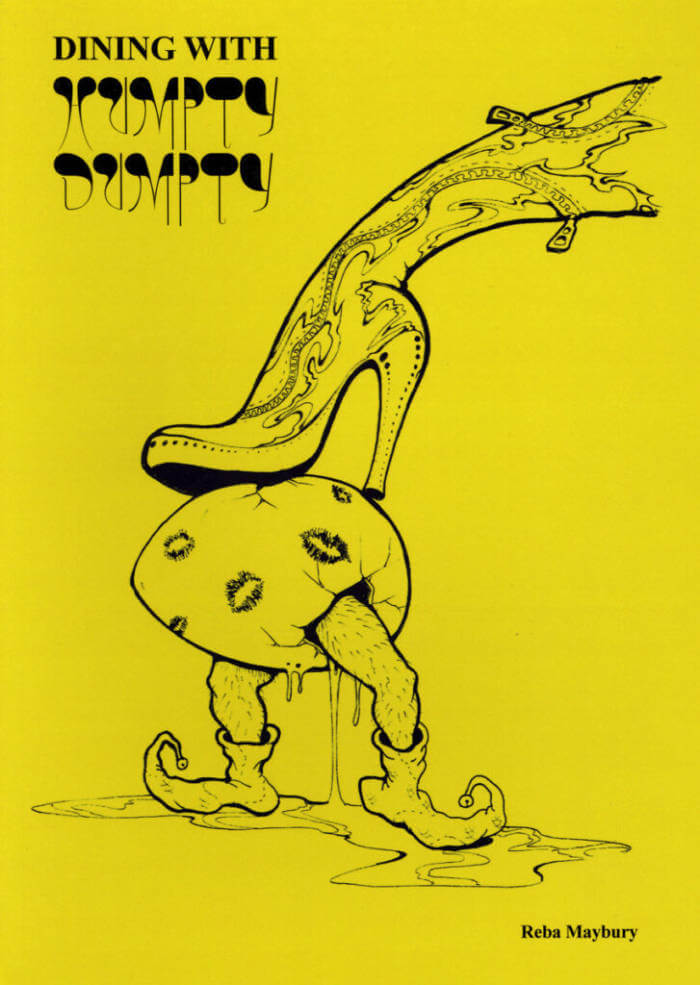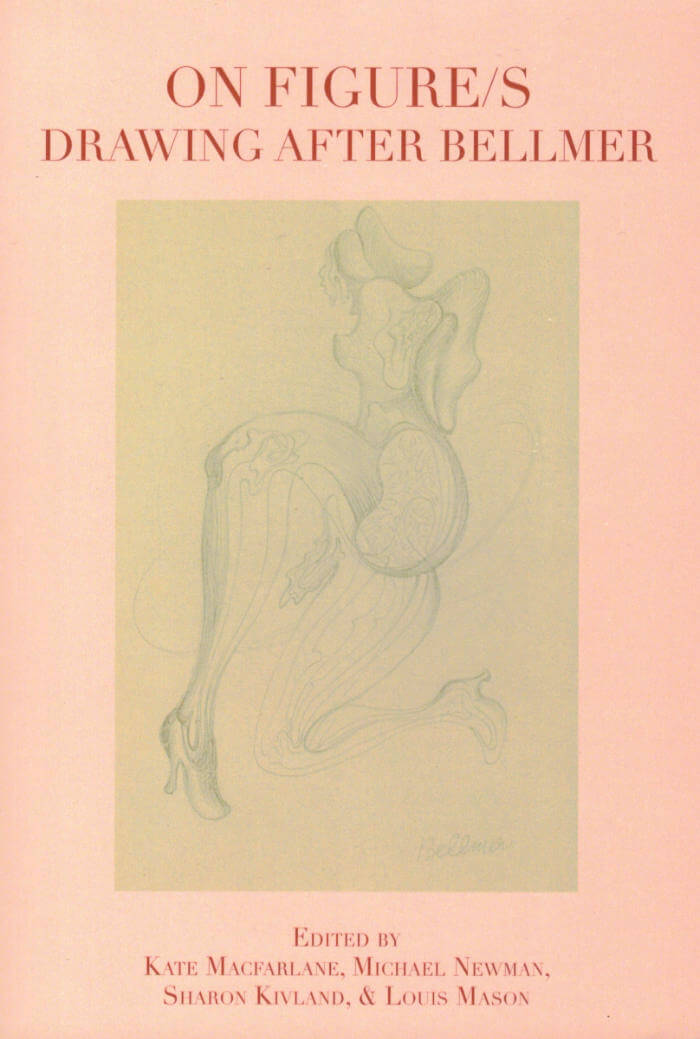Reba Maybury
Reba Maybury

Pervert or Detective?
Artists Reba Maybury and Lucy McKenzie dissect power and desire in a provocative conversation that probes the material erotic, appropriation, and sex.
In Pervert or Detective?, artists Reba Maybury and Lucy McKenzie dissect power, desire, and subversion in a provocative conversation. Maybury, who integrates her work as a political dominatrix into her artistic practice, manipulates dynamics of control, compelling her male submissives to create art under her direction, only to claim it as her own. Through confession and humiliation, she dismantles notions of authorship, masculinity, and labor. McKenzie, known for her intricate trompe l’oeil paintings and conceptual installations, similarly blurs boundaries—between art and commerce, and authenticity and illusion. Her work challenges power structures and exposes the unstable nature of representation.
Maybury and McKenzie, through an expansive discussion with French art critic Marie Canet, interrogate the logic of seduction and domination, pushing against rigid binaries to probe the material erotic, appropriation, and transformation. With an introduction by curators Fredi Fischli and Niels Olsen, an afterword by writer Susan Finlay, and extensive reading and viewing lists, Pervert or Detective? offers a compelling exchange between artists committed to unsettling the familiar and redefining artistic agency.
Introduction by Fredi Fischli and Niels Olsen
Afterword by Susan Finlay

Dining with Humpty Dumpty
Mistress Rebecca is approached by a 34-year-old Tory who works in a corporate field of creativity with a feeding fetish. Such mundanity is outrageous – until he declares himself as a female supremacist. Over the period of two evenings and one afternoon in three different chain restaurants in central London, Mistress Rebecca explores Humpty Dumpty’s beliefs then pushed his adoration of humiliation and his facade of female empowerment to its limits.
And more

Le Chauffage #3 - Day Job
Francesca Percival, Felix Rapp and 1 more
The third issue of Le Chauffage is an inquiry into the relationship between the practices of artists/ writers and their day jobs. This subject stems from a question fundamental to the existing mandate of Le Chauffage: 'how do you keep warm?' and subsequently, 'how do you pay the bills?' As these perennial concerns occupy our everyday lives, we ask artists/writers to consider the influence that their day jobs, side hustles, creative or non- creative forms of employment have on their respective practices.
This issue tries to account for the significant ways in which complex economic realities come to shape the art we produce, look at, and discuss. How do we deal with limited time and resources? How do we reclaim and steal time back? How do our day jobs shape and influence what we make? How do we subvert the means of production of the workplace? Can the constraint of a day job also be a way to alleviate the pressure of professionalising?
With contributions by Daniel Bozhkov, Nathan Crompton Pippa Garner, Chauncey Hare Marisa Kriangwiwat Holmes, Garrett Lockhart, Jannis Marwitz Reba Maybury, Tiziana La Melia, Dan Miller, Ragen Moss, Jean Luc Moulène, Jean Katambayi Mukendi Paul Niedermayer, Sophie Nys, Megan Plunkett, Chris Reinecke, Jacquelyn Zong Li Ross On Gabrielle L Hirondelle Hill Margaux Schwarz, Eleanor Ivory Weber James Welling, Werker, The Wig.

On Figure/s. Drawing After Bellmer
Louis Mason, Sharon Kivland and 2 more
Raised by a fascist father in Nazi Germany, the Surrealist artist Hans Bellmer (1902-1975) dedicated his œuvre to a perverse rewriting of the symbolic order. Famous for the two dolls he constructed in the mid-1930s, his transgressive ideas around the body as anagram were shared by his partner Unica Zürn. Both broke received codes of behaviour and the implicit rules of language, providing fertile ground for artists and other thinkers, including feminists, to similarly rewrite the body. ON FIGURE/S is published in parallel with the exhibition FIGURE/S: drawing after Bellmer (Drawing Room, London, September 2021). It gathers responses to its themes: body as letter, word and sentence; perversion and enjoyment; technical and forensic drawing in pursuit of pleasure; the other than human—becoming object, plant, animal. This book is a way to think through and with works of art and their histories, involving multiple textual forms, collage, and drawing, which take the radical and transgressive energy of Bellmer and Zürn in unexpected directions.
Contributors: Paul Buck, Lola Bunting , Alice Butler, Paul Chan, Iris Colomb, Vincent Dachy, Zoë Dowlen, Rachel Genn, Aurelia Guo, Mathew Hale, Tom Hastings, Rebecca Jagoe, Sharon Kivland, Sarah Lederman, Kate Macfarlane, Kumi Machida, Louis Mason, Reba Maybury, Jade Montserrat, John Murphy, Michael Newman, Bernard Noël, Tamarin Norwood , Francesco Urbano Ragazzi, Aura Satz, Sophie Seita, Anne Lesley Selcer, Isabel Seligman, Sarah Wilson

Le Large
This light, pocketbook format publication by After 8 Books gathers works by French artist Julie Beaufils, and three short stories commissioned for the occasion, dealing altogether with social tensions and emotional explosions.
The ink drawings by Julie Beaufils that form the core of the book, follow a logic of editing, accumulation and narrative incompleteness: the figures come from memories of films or TV series, as sediments of mass culture, or sometimes from personal observations and experiences crystallized in images. Shapes and figures develop as an ambivalent collection, informed by the weight and the vibration of lines and strokes.
This book aims at triggering the interpretation of these works, and at making their “reading” more complex, more playful too. Graphic designer Scott Ponik composed a visual story close to a manga, part abstraction, part emotion. The narrative and affective potential of the drawings is further activated by their free association with three short stories by Michael Van den Abeele, Buck Ellison, and Reba Maybury. Van den Abeele tells about the inner thoughts of a donor at the sperm bank; Buck Ellison’s story follows a few hours in the life of some girls in the San Francisco area, dealing with the cruelty and the naïvety of their relationships; while Reba Maybury proposes an erotic analysis of the connection between desire and capitalism.

NXS #3 Viral Bodies
NXS issue #3 Viral Bodies investigates the changing concepts of gender and identity norms in the digital space, and open the discussion to many possible speculations and to their real world implications.
Kicking off the issue with a starting piece by Reba Maybury, over 20 fellow contributors explore social conventions, share intimate moments and experiences of pain, love, hate and fear. They delve into authenticity in the non-human sphere, they code accidental bigotry on the internet. Science fiction writer Alan Dean Foster blurs the lines of reality, transmitting what is real and what not in a dystopian society. Political art critic Penny Rafferty unravels the minds of tech giants while artistic researcher Addie Wagenknecht questions the diffusing lines between virtual technology and working bodies in reality.